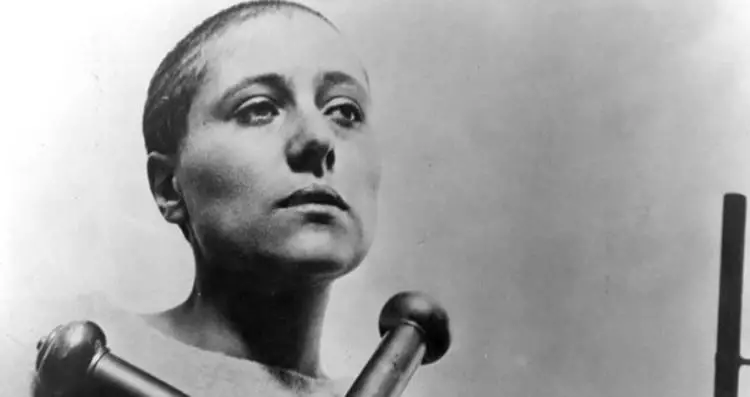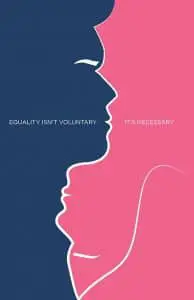[dropcap]I[/dropcap]magine a world where people are no longer compelled to meet the expectations of their biological sex. In this reality, women are no longer objectified for their physical beauty. They no longer feel pressured to marry, obligated to be mothers, or compelled to be homemakers. Men are no longer pressured to be breadwinners or to meet masculine expectations set by our society. Imagine if society no longer had a say in our daily lives. If society didn’t expect us to wear certain clothes, work particular jobs, get married, or have children. Envision a reality where women and men live equally without being bound to stereotypes or expectations surrounding their particular gender.
But why does this world have to be imagined? Gender equality—a reality in which an individual does not feel constrained by their society or bound to a specific gender with specific expectations—seems like a no-brainer today. If it is, then why does our society fixate on creating a dichotomy between sexes (masculinity versus femininity)?
Society, casually and carelessly, splits gender into masculine and feminine expectations based on our biological sex. It seems almost impossible today to discover yourself outside of your gender because society confines us to our specific gendered stereotype. And, when we don’t meet those gendered stereotypes, it can be difficult to feel comfortable in our society. However, author Lydia Yuknavitch eloquently discusses the fluidity of gender within a post-apocalyptic reality in which gender physically no longer exists.

Gender and Society’s Expectations
In Yuknavitch’s world, our human bodies look similar and our biological reproductive systems do not physically exist. If this is true, then why is society’s expectations for our biological gender still so powerful?
Lydia Yuknavitch eloquently explores the rawness of humanity when almost nothing human remains. Her ingenious 2017 sci-fi, The Book of Joan, enchantingly captures the rapid devolution of humanity. The devolution left humanity in transparently white, formless, hairless, and sexless bodies. In Yuknavitch’s world, our human bodies look similar and our biological reproductive systems do not physically exist. If this is true, then why is society’s expectations for our biological gender still so powerful?
In her novel, Yuknavitch scrutinizes society for its inadaptability to compensate for humanity’s loss of gender. If we are no longer bound to a gender then why are we confined to the expectations of a gender? This is a major question which Yuknavitch tackles in her novel. The Society within The Book of Joan confines individuals to their assigned gender, subjecting them to certain feminine/masculine expectations. For instance, The Book of Joan‘s society makes genderless women feel powerless because they are unable to reproduce. Their society forces women to feel like outliers because they are independent, husbandless, or simply challenge society’s feminized expectations.

Gender and The Individual
Yes, individuals are affected by society’s expectations of gender (even in a genderless world). However, individuals are also personally affected as everyone surrounding them becomes physically genderless. Yuknavitch explores characters who become sexless as well as characters who never let their assigned gender define them. In this situation, Yuknavitch explores what it means to be human as these polarized characters tackle society’s expectations.
One character, Christine, has a traditional relationship with society. Christine, before the devolution of humanity, is a genderless female. Christine had married, she was a homemaker while her husband worked. Although, once humanity’s devolution took hold on the population Christine lost her gender (her womanly-ness) physically. Nevertheless, the loss of her gender only made her stronger. Yuknavitch explores how society’s inadaptability to humanity’s physical alterations allowed individuals, like Christine, to explore who they truly are beyond society’s expectations for them.
Be careful what stories you tell yourselves about beauty, about otherness. Be careful what stories ‘count.’ They will have consequences that shiver the planet –The Book of Joan
Yuknavitch challenges feminine and masculine stereotypes by casting them aside. She begins by taking away humanity’s ability look male/female or (more drastically) to procreate. Yuknavitch casts these elements aside to further make her point about how gender affects society as well as the individual. She digs deeper than physical gender alone, and instead, focuses on understanding the mind of the individual. Therefore, the essence of humanity comes not from our assigned biological sex at birth, but from within. Humanity’s rawness is produced from our minds (laden with our stories, imagination, and sense of self).
Whereas (another character) Joan, finds herself an outcast from mainstream society. From a young age, Joan resisted conforming to society’s expectations of her. This left Joan disjointed from society. For many, Joan is relatable to the average reader. Joan represents someone who doesn’t meet society’s standards. However, though Joan appears an outcast, her resilience and distance from society made her more strong, capable, and confident in herself.
…the purity of the human mind is arguably the essence of humanity.
Yuknavitch explores Joan’s self-assurance as she describes love beyond the physical, beyond our assigned biological sex. She beautifully captures an expression of love as Joan and Leone lean on, support, and show compassion for one another. As their history is unraveled, their relationship established, and their personalities meld together their love is transcended beyond the physical. Yuknavitch simply allows love to transcend beyond our assigned gender and humanity’s carnal need to reproduce as a species. She cleverly elevates our understanding of love by removing gender constraints and focusing on an individual’s unique mind (their personality). Therefore, the purity of the human mind is arguably the essence of humanity.

The Individual and Society Collide
Yuknavitch brilliantly meshes one’s individual identity with gender fluidity. Conveying that the human body represents a blank canvas to which we are able to mold ourselves.
Ultimately, Yuknavitch depicts a society that cannot let go of the expectations they have developed for certain genders. I believe this reflects our society today. In many ways, our society is the reason we cannot have the equality depicted at the beginning of this article. Even today, men, women, and children are heavily affected by society’s gendered expectations as they are forced to compile with stereotypes in order to fit in with society. And much like today, we are still subdued to dressing ourselves by society’s feminine/masculine standards.
Yuknavitch cleverly plays with these issues by showing how the mind is more powerful than what gender you are. She uses an individual’s mind to represent how we should choose to display ourselves on our physical forms (piercings, tattoos, haircuts, clothing, etc.). Yuknavitch brilliantly meshes one’s individual identity with gender fluidity. Conveying that the human body represents a blank canvas to which we are able to mold ourselves.
Sequentially, though we may be ready to have a gender-neutral reality. A reality where individuals are not confined to the expectations of their gender but by who they are as an individual. Society is often slow to evolve into what we need it to be. Nevertheless, progress can be attained, even if it takes a lifetime.





